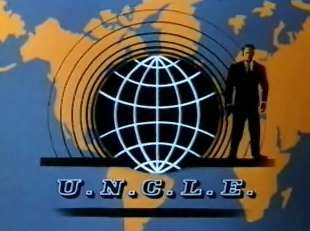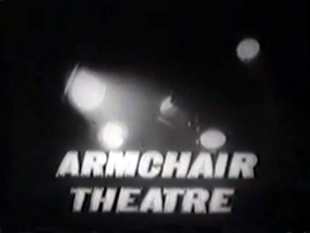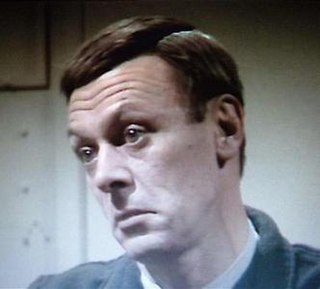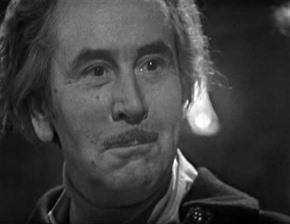
The Man from U.N.C.L.E. is an American spy fiction television series produced by Metro-Goldwyn-Mayer Television and first broadcast on NBC. The series follows secret agents Napoleon Solo, played by Robert Vaughn, and Illya Kuryakin, played by David McCallum, who work for a secret international counterespionage and law-enforcement agency called U.N.C.L.E.. The series premiered on September 22, 1964, and completed its run on January 15, 1968. The program was part of the spy-fiction craze on television, and by 1966 there were nearly a dozen imitators. Several episodes were successfully released to theaters as B movies or double features. There was also a spin-off series, The Girl from U.N.C.L.E., a series of novels and comic books, and merchandising.

Ironside is an American television crime drama that aired on NBC over eight seasons from 1967 to 1975. The show starred Raymond Burr as Robert T. Ironside, a consultant for the San Francisco police department, who was paralyzed from the waist down after being shot while on vacation. The character debuted on March 28, 1967, in a TV movie entitled Ironside. When the series was broadcast in the United Kingdom, from late 1967 onward, it was broadcast as A Man Called Ironside. The show earned Burr six Emmy and two Golden Globe nominations.

Danger Man is a British television series that was broadcast between 1960 and 1962, and again between 1964 and 1968. The series featured Patrick McGoohan as secret agent John Drake. Ralph Smart created the programme and wrote many of the scripts. Danger Man was financed by Lew Grade's ITC Entertainment.
Magnum, P.I. is an American crime drama television series starring Tom Selleck as Thomas Magnum, a private investigator (P.I.) living on Oahu, Hawaii. The series ran from December 11, 1980, to May 1, 1988, during its first-run broadcast on the American television network CBS. Magnum, P.I. consistently ranked in the top 20 U.S. television programs in the Nielsen ratings during the first five years of its original run, finishing as high as number three for the 1982–83 season. The series entered syndication in 1986 under the title Magnum in order to differentiate reruns from new episodes still airing under the original title on CBS.

The Rockford Files is an American detective drama television series starring James Garner that aired on the NBC network from September 13, 1974, to January 10, 1980. Garner portrays Los Angeles private investigator Jim Rockford, with Noah Beery Jr. in the supporting role of his father, Joseph "Rocky" Rockford, a retired truck driver. The show was created by Roy Huggins and Stephen J. Cannell. Huggins had created the television show Maverick (1957–1962), which starred Garner, and he wanted to create a similar show in a modern-day detective setting. In 2002, The Rockford Files was ranked No. 39 on TV Guide's 50 Greatest TV Shows of All Time.
James William Mitchell was a British writer, principally of crime fiction and spy thrillers. He is best known for creating Callan (1967–1972) and When the Boat Comes In (1976–1981).

Edward Albert Arthur Woodward, OBE was an English actor and singer. After graduating from the Royal Academy of Dramatic Art, he began his career on stage. Throughout his career, he appeared in productions in both the West End of London and on Broadway in New York City. He came to wider attention from 1967 in the title role of the British television spy drama Callan, earning him the 1970 British Academy Television Award for Best Actor.

Armchair Theatre is a British television drama anthology series of single plays that ran on the ITV network from 1956 to 1974. It was originally produced by ABC Weekend TV. Its successor Thames Television took over from mid-1968.

Bless This House is a British sitcom that aired on ITV from 2 February 1971 to 22 April 1976, with a total of 65 episodes. Starring Sid James and Diana Coupland, it was created by Vince Powell and Harry Driver, but mainly written by other hands including Dave Freeman and Carla Lane. It was made for the ITV network by Thames Television. In 2004, Bless This House was ranked by a BBC poll as the 67th Best British Sitcom.

The Professionals is a British crime-action television drama series produced by Avengers Mark1 Productions for London Weekend Television (LWT) that aired on the ITV network from 1977 to 1983. In all, 57 episodes were produced, filmed between 1977 and 1981. It starred Martin Shaw, Lewis Collins and Gordon Jackson as agents of the fictional "CI5".

The Saint is a British crime television series that aired in the United Kingdom on ITV between 1962 and 1969. It was based on the literary character Simon Templar created by Leslie Charteris in the 1920s and featured in many novels over the years. In the television series, Templar was played by Roger Moore. Templar helps those whom conventional agencies are powerless or unwilling to protect, often using methods that skirt the law. Chief Inspector Claud Eustace Teal is his nominal nemesis who considers Templar a common criminal, but often grudgingly tolerates his actions for the greater good.

Climax! is an American television anthology series that aired on CBS from 1954 to 1958. The series was hosted by William Lundigan and later co-hosted by Mary Costa. It was one of the few CBS programs of that era to be broadcast in color, using the massive TK-40A color cameras pioneered and manufactured by RCA, and used primarily by CBS's rival network, NBC. Many of the episodes were performed and broadcast live, but, although the series was transmitted in color, only black-and-white kinescope copies of some episodes survive to the present day. The series finished at #22 in the Nielsen ratings for the 1955–1956 season and #26 for 1956–1957.

The Fugitive is an American crime drama television series created by Roy Huggins and produced by QM Productions and United Artists Television. It aired on ABC from September 17, 1963 to August 29, 1967. David Janssen starred as Dr. Richard Kimble, a physician who is wrongfully convicted of his wife's murder and sentenced to death. En route to death row, Dr. Kimble's train derails over a switch, allowing him to escape and begin a cross-country search for the real killer, a "one-armed man". At the same time, Richard Kimble is hounded by the authorities, most notably by Police Lieutenant Philip Gerard.

The Equalizer is an American spy thriller television series, originally airing on CBS from September 18, 1985, to August 24, 1989; which was co-created by Michael Sloan and Richard Lindheim. It starred Edward Woodward as Robert McCall, a retired intelligence agent with a mysterious past, who uses the skills from his former career to exact justice on behalf of innocent people who find themselves in dangerous circumstances, while sometimes also dealing with people from his past in covert operations who want to pull him back in or settle old scores. The show has inspired two further works, including three feature films and a re-imagined series.

Adam Russell Hunter was a Scottish television, stage and film actor. He played Lonely in the TV thriller series Callan, starring Edward Woodward, and shop steward Harry in the Yorkshire Television sitcom The Gaffer (1981–1983) with Bill Maynard. He made guest appearances in television series such as The Sweeney, Doctor Who, Taggart, A Touch of Frost, The Bill and The Return of Sherlock Holmes in The Adventure of Silver Blaze.

Joseph Fürst was an Austrian-born international film and television actor known for his English language roles in Britain and Australia, after first appearing on the Canadian stage.

Ronald Radd was a British television actor. He is perhaps best remembered for originating the role of Hunter in the television thriller series Callan. In 1971, he was nominated for a Tony Award for Abelard and Heloise.

The Monkees is an American television sitcom that first aired on NBC for two seasons, from September 12, 1966, to March 25, 1968. The series follows the adventures of four young men trying to make a name for themselves as a rock 'n roll band. The show introduced a number of innovative new-wave film techniques to series television and won two Emmy Awards in 1967, including Outstanding Comedy Series. The program ended in 1968 at the finish of its second season and has received a long afterlife through Saturday morning repeats and syndication, as well as overseas broadcasts.

Callan is a 1974 British thriller film directed by Don Sharp and starring Edward Woodward, Eric Porter, Carl Möhner and Russell Hunter. It was based on the pilot episode of the ITV television series Callan which ran from 1967 to 1972.

















